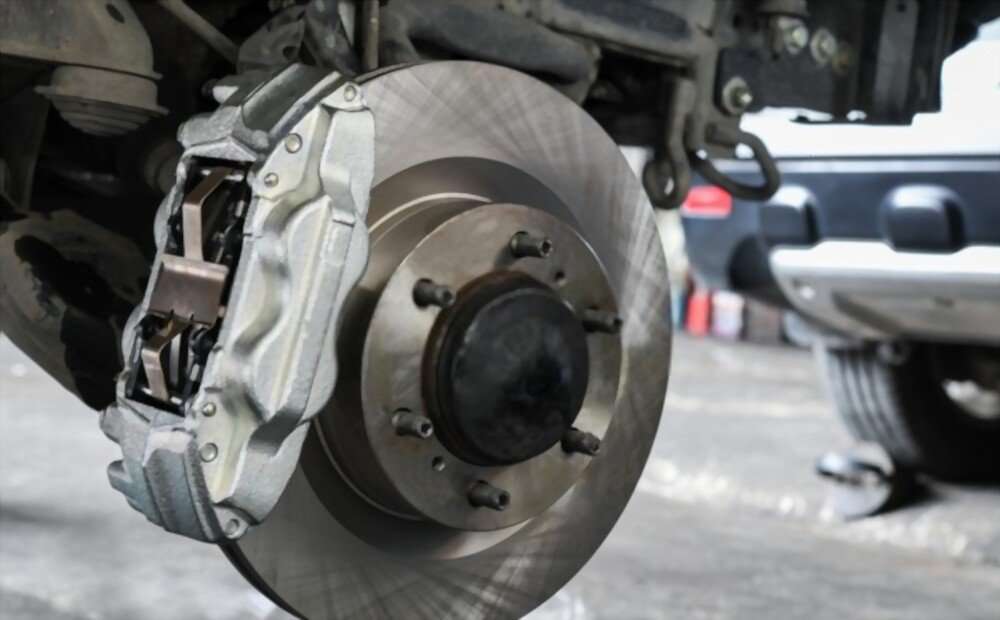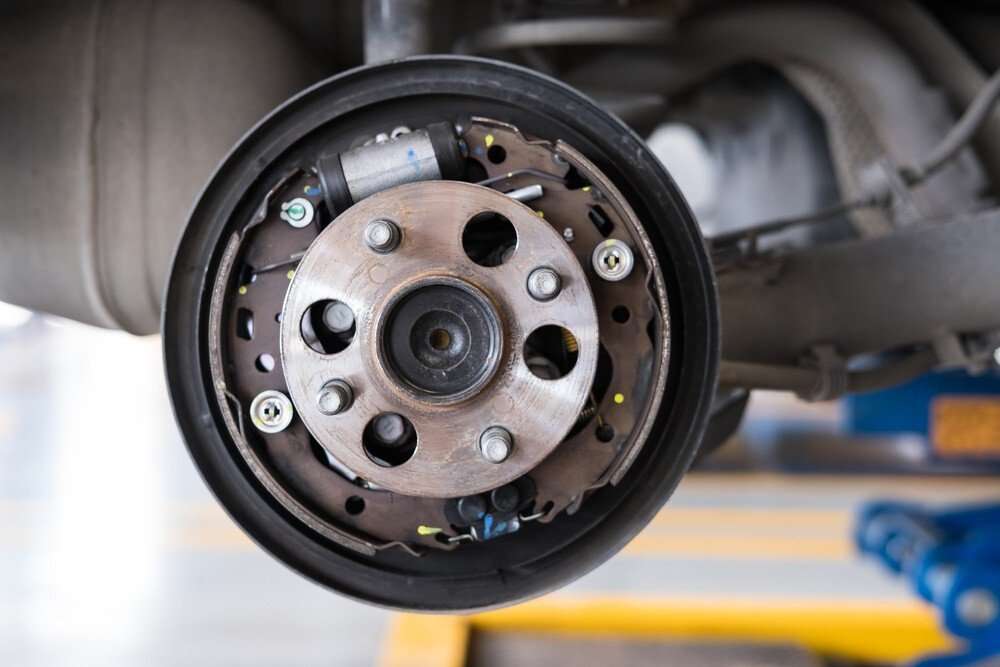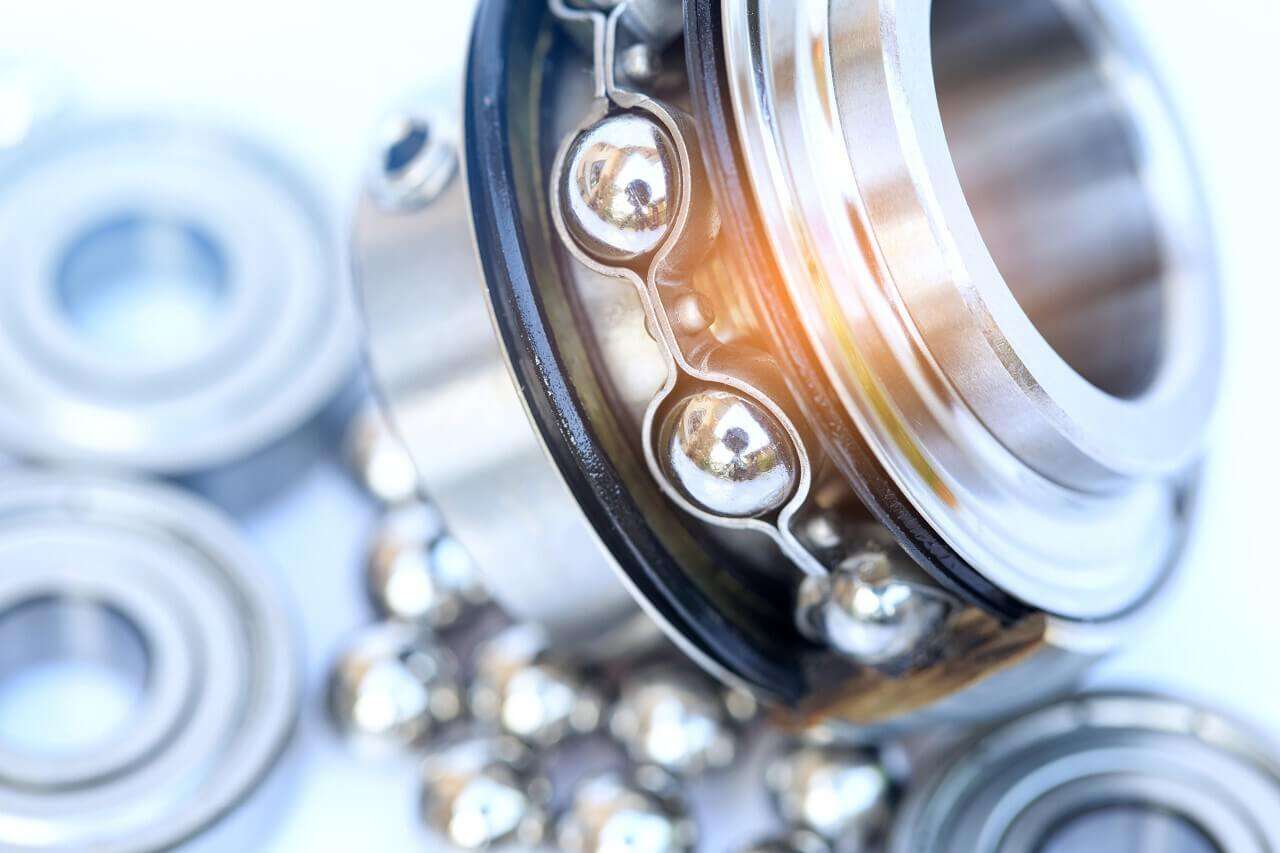It’s impossible to predict how long wheel bearings will last after they start making noise, but there are some practical steps you can take to minimize the chances of problems arising and to ensure the bearing lasts as long as possible.
When people hear the sound of a wheel bearing, their mind jumps to the worst question that is, how long will a wheel bearing last after it starts making noise? This article will help you answer that question and help prevent any unnecessary damage to your vehicle.
As a car owner, you know that some parts of your vehicle always need to be checked and replaced on time. One such part is the wheel bearing. These bearings are designed for high-speed rotation and will eventually wear out if they’re not regularly serviced or replaced. And once it starts making noise, it’s important to have it looked at as soon as possible because its life expectancy has been greatly reduced.
The wheel bearing is a small metal cup that sits in between the outer rim of the tire and the hub of the car’s axle assembly. It spins with ease thanks to lubrication from the oil inside the hub and grease outside on both sides of it – this keeps everything running smoothly while also preventing corrosion buildup. The bearings also contribute to the steering of your car as they allow you to turn sharp corners and swerve without having your tires lose contact with the road.
Note: Any faulty or noisy wheel bearing can cause wheel damage if left unattended for long periods, which is why a faulty wheel bearing replacement is necessary to keep wheel damage minimized.
Jump to
- 1 How long will a wheel bearing generally last?
- 2 Common Signs Indicating your wheel bearing won’t last long
- 3 Reasons behind A Noisy Wheel Bearing
- 4 How to Prevent a Wheel Bearing from Failing
- 5 Frequently Asked Questions
- 5.1 What does a bad wheel bearing sound like?
- 5.2 Can I drive with a bad wheel bearing?
- 5.3 How long can I drive on a bad wheel bearing?
- 5.4 How much does it cost to replace a wheel bearing?
- 5.5 How can I prevent my wheel bearings from going bad?
- 5.6 Final Thoughts – How Long Will a Wheel Bearing Last After It Starts Making Noise
How long will a wheel bearing generally last?

In most cases, a wheel bearing can last anywhere from 40,000 to 100,000 miles (64,000-160,000 kilometers) depending on the vehicle model and where you live (for example, will it be driven in harsh weather conditions or deep potholes?). But once they start making noise, the time for replacement is much sooner. You should start the noisy wheel-bearing diagnosis right away if you’ve noticed any of the signs mentioned below.
Common Signs Indicating your wheel bearing won’t last long
How will you know when you should replace your wheel bearings in your wheel assembly? Here are five signs.
-
They make a grinding sound when you stop or slow down
When you have wheel bearing noise, have your mechanic or repairman check it out as soon as possible. The sound of grinding indicates that a wheel bearing is being pushed around in their housing and may already require replacement. If left without repair, the grinding will only get worse until it becomes unbearable.
-
It’s difficult to steer your car or van
Another sure sign of a problem with a wheel bearing is when it becomes difficult to steer. This could be caused by a bent spindle or a loose or worn axle cap, but it would need to be replaced if you hear noises from the wheel bearing itself. The noise will depend on whether the problem is in one or both bearings, but a combination of both is usually what you’ll hear.
-
The wheel wobbles when you drive
When you’re driving, your tires should be tightly in contact with the road. You should get a smooth ride with no sudden jerks or vibrations. Wobbling is an indication that the bearings are not keeping up with the others and need to be replaced. The problem will probably get worse over time, so have it checked out as soon as possible for safe driving.
-
Your car emits a screeching sound
Another sign of an issue with a wheel bearing is when you hear a high-pitched screech. This will also get louder over time until you replace it. The screeching sound could be coming from a wheel bearing that’s on its way out.
-
The steering wheel is vibrating
A final sign of a wheel bearing issue is when the car starts to shake while you drive. This may be caused by your tires being out of alignment, but if you notice it happening regularly, then that’s a bad sign for bad wheel bearings. If this happens and you continue driving in this condition, your tire rims will eventually wear through the bearings and cause the car to shake even more. Pull over and have your vehicle towed for a wheel alignment if you feel a vibration.
Reasons behind A Noisy Wheel Bearing

A noisy wheel bearing can arise for a variety of reasons. Here are some of the most common:
- The bearing may have a loose assembly and is rattling around while you drive.
- There may be excessive play between the wheel hub and the worn out wheel bearing, which can be caused by a loose axle.
- The bearings themselves may have worn out or corroded.
- The wheel itself may have a damaged rim, which can make the bearing spin unevenly and create noise.
- Bad wheel assembly or improper installation of the wheel bearing can also lead to a noisy car.
How to Prevent a Wheel Bearing from Failing
Wheel bearings are critical components in a vehicle’s wheel assembly, allowing the wheels to turn freely and keeping them attached to the car. A failing wheel bearing can result in poor handling, reduced fuel efficiency, uneven tire wear, and in extreme cases, a wheel detaching from the vehicle. Ensuring the longevity and proper functioning of wheel bearings is essential for safe driving. Here’s how you can prevent a wheel bearing from failing:
- Regular Inspection and Maintenance:
- Routine checks are the first line of defense. During regular maintenance or tire rotation, ask your mechanic to inspect the wheel bearings for signs of wear or damage.
- Listen for any unusual noises. A humming or grinding noise coming from the wheel area can indicate a worn-out or failing bearing. Early detection can prevent more severe damage.
- Proper Lubrication:
- Wheel bearings need to be adequately lubricated to reduce friction and prevent overheating. Over time, the lubrication can break down or become contaminated.
- Regularly repack the bearings with high-quality, high-temperature wheel bearing grease. For vehicles with sealed wheel bearings that can’t be repacked, ensure they’re replaced at recommended intervals.
- Avoid using cheap or incorrect lubricants. Always follow the manufacturer’s recommendation for the type and consistency of grease.
- Avoid Overloading Your Vehicle:
- Each vehicle has a weight limit that shouldn’t be exceeded. Overloading puts additional strain on the wheel bearings, increasing the risk of premature wear.
- Always adhere to your vehicle’s weight and towing capacity. Check the owner’s manual or consult the manufacturer for specifications.
- Drive Carefully:
- Driving habits significantly impact the lifespan of wheel bearings. Avoid hitting potholes, curbs, and other obstacles, as the force of such impacts can damage the wheel bearing or the races in which the bearings roll.
- Maintain a moderate speed on rough or uneven roads. Constant jarring from rough terrain can accelerate wear and reduce how long a wheel bearing last.
- Quality Replacements:
- If you need to replace a wheel bearing, ensure you’re using high-quality replacements. Cheaper, off-brand parts might not meet the same standards or tolerances as OEM (original equipment manufacturer) or reputable aftermarket brands.
- When replacing, ensure the entire wheel bearing assembly, including the races, is replaced, and not just individual components. Mixing old and new parts can lead to uneven wear.
- Ensure Proper Installation:
- A wheel bearing must be installed correctly to function properly and have a long life. An improperly installed bearing can fail prematurely.
- Use the right tools for the job. Specialized tools, like bearing press kits, ensure even pressure when installing a bearing. Avoid using hammers or other blunt instruments, which can damage the bearing.
- Always follow the manufacturer’s torque specifications for tightening wheel bearing related nuts and bolts. Over-tightening can put undue stress on the bearing, while under-tightening can lead to wobbling and uneven wear.
- Keep Your Vehicle Clean:
- Regularly washing your car, especially the undercarriage, can prevent contaminants like dirt, salt, and other corrosive substances from reaching the rear wheel bearings.
- After driving in muddy or salty conditions, like on winter roads treated with salt, ensure you rinse the wheel and axle area thoroughly to clean out the ball bearing.
- Avoid Deep Water:
- Submerging the wheel bearings in water, especially if it’s dirty or muddy, can allow contaminants to penetrate seals or even dilute the lubricating grease. Avoid driving through deep puddles or flooded areas.
- Check for Proper Wheel Alignment:
- Misaligned wheels can lead to uneven pressure on the wheel bearings. Ensure your vehicle’s alignment is checked regularly, especially if you notice uneven tire wear or if your vehicle pulls to one side.
- Stay Alert to Warning Signs:
- Apart from noises, other warning signs of a failing bearing include a loose-feeling steering wheel, a wheel that feels hot to touch after a drive, or a persistent ABS light on your dashboard.
In conclusion, while wheel bearings are built to last, they aren’t invincible. Regular maintenance, attentive driving habits, and prompt attention to warning signs are key to extending their lifespan and preventing potential failures. Safe driving practices not only ensure the longevity of components like wheel bearings but also contribute to overall road safety.
Frequently Asked Questions
What does a bad wheel bearing sound like?
Answer: A bad wheel bearing can make a variety of noises, including:
- Humming
- Grinding
- Whining
- Growling
- Clicking
The bad bearing noise may be louder at certain speeds or when turning. If you hear any of these noises, it’s important to have your wheel bearings checked by a mechanic.
Can I drive with a bad wheel bearing?
Answer: You can drive with a bad wheel bearing for a short distance, but it’s not safe to do so for long. A noisy bearing can cause the steering wheel to wobble, which can lead to loss of control of the vehicle. It can also cause the wheel to lock up, which can cause an accident. If you hear a noise coming from your wheels, it’s important to have it checked by a mechanic as soon as possible.
How long can I drive on a bad wheel bearing?
Answer: It’s difficult to say how long you can drive on noisy wheel bearings, as it depends on a number of factors, including the severity of the damage and the type of vehicle you’re driving. However, it’s generally not recommended to drive for more than a few hundred miles on a bad wheel bearing. If you hear a noise coming from your wheels, it’s best to have them checked by a mechanic as soon as possible.
How much does it cost to replace a wheel bearing?
Answer: The cost to replace a failing wheel bearing varies depending on the make and model of your vehicle. However, you can expect to pay between $200 and $500 for the wheel hub repair.
How can I prevent my wheel bearings from going bad?
Answer: There are a few things you can do to prevent your wheel bearings from going bad:
- Get your oil changed regularly. Oil helps to lubricate the wheel bearings and keep them from wearing out.
- Avoid driving on rough roads. Rough roads can put extra stress on the wheel bearings and cause them to wear out prematurely.
- Don’t overload your vehicle. Overloading your vehicle can put extra stress on the suspension and wheel bearings.
- Get your wheel bearings inspected regularly. This will help to identify any problems early on with a bad bearing before they cause serious damage.
Final Thoughts – How Long Will a Wheel Bearing Last After It Starts Making Noise
Wheel bearings are what allow your wheels to turn smoothly and without any resistance or loud noise, but if they start making sounds that indicate there is an issue like the excess play between the hub and the wheel bearing itself, they need attention as soon as possible for safe driving.
Remember – wheel bearings are important for smooth and reliable wheel rotation. If they start making noises, the time to have them replaced is sooner rather than later.
We hope this article on how long will a wheel bearing last after it starts making noise gave you a greater understanding of the actual problem. if you have any thoughts or questions, please leave them in the comment section below.

My name is Tom Harris, founder of this blog. I’m a mechanical engineer with 20 years of experience in the automotive industry. I’m here to help you with your vehicle’s problems, easy fixes and share my insights and experience so that you can enjoy your rides more.

